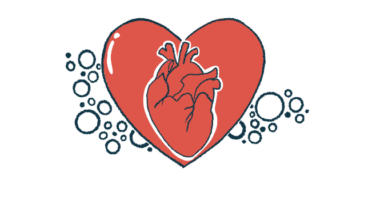Growth Delays Plus Rapid Weight Gain in Children May Signal Cushing’s

Cushing’s syndrome should be suspected in children and adolescents with evident growth delays, and signs of rapid weight gain, depression, anxiety, and hyperandrogenism, a study finds.
While brain surgery to remove a tumor lessens the symptoms of Cushing’s, many children and adolescents end up with obesity as a chronic complication of their disorder, its authors emphasized.
The study, “Cushing disease in children and adolescents — assessment of the clinical course, diagnostic process, and effects of the treatment — experience from a single paediatric centre,” published in the journal Pediatric Endocrinology Diabetes and Metabolism.
Cushing’s syndrome results from excessive production of the glucocorticoid hormone cortisol by the adrenal glands, which sit on top of the kidneys.
In most cases, the disease is caused by excessive production of the adrenocorticotropic hormone (ACTH) as a consequence of a tumor in the pituitary gland (known as Cushing’s disease) or elsewhere in the body (ectopic ACTH syndrome), and is considered a form of ACTH-dependent Cushing’s syndrome.
However, in some cases, the disorder may be caused by the hyperactivity of the adrenal glands, or by tumors that produce too much cortisol. All these are forms of ACTH-independent Cushing’s syndrome.
Despite being more common than other forms of Cushing’s syndrome, Cushing’s disease is rare in children and adolescents, and carries a set of signs and symptoms that differ from those normally seen in adults.
To document the diagnostic procedures and treatments often used in children and adolescents with Cushing’s disease, investigators in Poland examined the medical records of four female patients, ages 7-15, with Cushing’s disease who were followed at a specialized pediatric center from 2012 to 2018.
The diagnosis of Cushing’s disease in all study participants was confirmed by laboratory tests that assessed the levels of ACTH and cortisol in the blood and urine, and histology analyses performed on tissue samples gathered during tumor-removal surgery.
Before being diagnosed, all had experienced rapid weight gain, accompanied by growth delays. Some also had behavioral problems (depression, anxiety, and aggressiveness), menstruation disorders, and hyperandrogenism (excessive levels of male hormones in females, resulting in the development of characteristics more typical of males).
The time lag between first symptoms and diagnosis for these patients was a median of 1.5 years. In all cases, the diagnostic process was conducted in accordance with current standard guidelines that involve the use of laboratory tests to assess the levels of cortisol and ACTH in the blood and urine.
All also had magnetic resonance imaging (MRI) brain scans to confirm the presence of the tumor in the pituitary gland — found underneath the brain and behind the bridge of the nose — before having surgery. In half of these patients, MRI scans had to be repeated until the tumor became visible.
The youngest child had cyclical Cushing’s disease, a disease form with periods of symptom remission that can be more challenging to diagnose due to its cyclical nature.
All underwent brain surgery to remove the pituitary tumor, and required temporary hydrocortisone substitution.
“In most patients after neurosurgery, hydrocortisone substitution is necessary in the period depending on the duration of symptoms before the diagnosis of the disease,” the investigators wrote.
Following tumor-removal surgery, hormone levels normalized and clinical symptoms subsided. However, obesity remained. All four are still in remission, the researchers said, although physicians suspected tumor regrowth in the eldest patient.
Upon the coexistence of “growth velocity inhibition (not necessarily short stature) with weight gain (not necessarily obesity), the appearance of hyperandrogenism, and depressive-anxiety disorders, the biochemical diagnostics of CS [Cushing’s syndrome] should be performed,” the researchers wrote.
“The treatment of choice is [tumor-removal brain surgery], which, if complete, causes a reduction of the clinical symptoms of the disease,” they added. “Obesity can be a chronic complication of CD, even after effective treatment. All patients should be carefully monitored by an experienced endocrinologist.”






